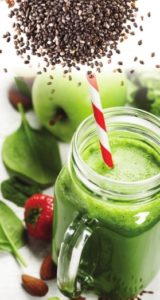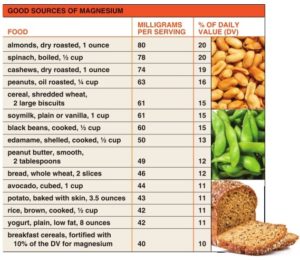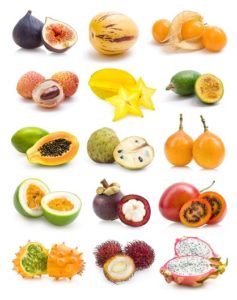Supplements/Ergogenic Aids
Nut Allergies: They’re Not One-Size-Fits-All
Being allergic to one kind of nut may not oblige you to avoid all nut varieties, a new study suggests.
Published in the March issue of Annals of Allergy, Asthma and Immunology, the study looked at 109 patients at an allergy referral center and found that more than half who were allergic to one kind of tree nut passed the allergy tests for other nuts. (Common tree nuts include almonds, cashews, hazelnuts, pecans, pistachios and Brazil nuts. Peanuts are technically a legume, not a nut.)
Yes, Your Clients Can Cut Their Risk of Heart Disease Events
Never underestimate the power of a healthy lifestyle to support heart health.
A study published in The New England Journal of Medicine has shown that healthy eating and exercise habits can substantially cut the risk of heart disease events, even in people who inherit high risk for these events.
Ask the RD
Sanna Delmonico, MS, RDN, CHE, is on the faculty at The Culinary Institute of America at Greystone, in Napa, California, where she teaches food safety, nutrition and gastronomy. As a dietitian nutritionist working in a culinary school, she makes it her goal to help students see the connection between good health and delicious food.
Question: Dried seaweed snacks are really popular these days—even my kids like them. How nutritious are they? What about other types of seaweed?
In Season and Good for You: Cardoons
Trying to stick to a Mediterranean diet? You may want to add cardoons to your cooking repertoire. This thistle-like perennial Mediterranean native plant is closely related to artichokes, though the edible part is a silvery green-gray stalk, similar to celery—and it tastes like a combination of the two.
Question of the Month
What nutrition strategies, food items or food consumption habits help to ease your stress?
Share your ideas with Sandy Todd Webster at swebster@ideafit.com.
More Vegetables and Fruit = Less Psychological Distress
Eating vegetables and fruit is associated with low psychological distress, according to a University of Sydney analysis of more than 60,000 adults aged 45 or older. The new study confirms British, Canadian and Swiss studies—which have found that eating moderate amounts of fruits and vegetables contributes to well-being and low risk of depression and distress—but suggests a stronger protective effect for women than for men.
Death and Diet Dos and Don’ts
Nearly half of heart disease-related deaths are associated with eating or drinking certain foods, according to survey analyses reported in the March issue of the Journal of the American Medical Association. Researchers looked at the diets of 702,308 people whose deaths in 2012 were due to heart disease, stroke or type 2 diabetes—putting them in the category of cardiometabolic deaths.
Turn It Off: The Boob Tube–Obesity Connection
Adults who said they did not watch TV during family mealtimes were 37% less likely to be obese than adults who kept the TV on while eating as a family, according to a survey of 12,842 Ohio residents, reported in the Journal of the Academy of Nutrition and Dietetics in February 2017. The survey also found that when all family meals were home-cooked, adults were 26% less likely to be obese than when no or only some family meals were home-cooked.
The number of family meals survey respondents ate each week had little impact on their obesity rates.
Fresh Tomatoes for Father’s Day
Looking for a good Father’s Day gift that puts Dad’s good health front and center? How about a box of ripe, fresh tomatoes? They contain lycopene, an antioxidant that could decrease his risk of stroke, according to one Finnish study. And plant-based diets that include foods rich in lycopene (tomato products, watermelon, pink grapefruit, guava and papaya) have been associated with a lower risk of prostate cancer—the most common cancer for men in the U.S. and the second-leading cause of cancer death in U.S. men.
Recipe for Health: Carrot Saffron Soup
Brace your taste buds for a delicious, warm and welcoming flavor explosion! This soup recipe from chef Matthew Kenney can be the perfect centerpiece for a light spring lunch, a tantalizing start to dinner, or even a savory breakfast.
Question of the Month
Parents seem to realize their kids need to eat better—but they're not doing much about it.
A recent national poll of 1,767 parents of kids aged 4–18, conducted by C.S. Mott Children"s Hospital at the University of Michigan, Ann Arbor, found that while 97% of the grownups believed childhood eating habits have a lifelong impact on health, only 1 in 6 of them felt that their child's diet was very healthy.
Send your responses to Sandy Todd Webster at swebster@ideafit.com.
Study Links Whole Grains to Higher Metabolism
Health experts have long agreed that whole grains are much better for us than heavily processed, or refined, grains. Now a new study suggests that eating whole grains can help with weight loss, too.
Update to Labels May Curb Food Waste
Americans waste about 8 million pounds of food each year. What if we could easily reduce that—and put nearly $30 million back into people's pockets? Ditching expiration‐date labels on foods offers a promising start.
What Is Milk, Anyway?
Plant‐based milks such as almond milk, soymilk, coconut milk, hemp milk and others seem to have wounded the pride of traditional milk providers. In January, a bill called the Dairy Pride Act was introduced in Congress. If passed, it would compel the Food and Drug Administration to enforce an existing guideline that limits use of the word "milk" to the products of hooved mammals like cows, sheep and goats.
Ask the RD
Question: I use chia seeds and flaxseed in smoothies. How do they compare to fish as sources of omega‐3s?
Yes, Magnesium Deserves More Respect
People tend to forget about magnesium, but health experts increasingly recognize the key role it plays in boosting health. Magnesium is critical to muscle, nerve and heart function; blood glucose control; energy production; and bone structure.
Don’t Go Sour on Fermented Foods
Looking for novel, nutrient‐packed foods to add to your diet? Fermented foods may be what you've been missing all your life. Known for their active bacteria and sour flavor, fermented foods improve blood sugar, blood pressure, eczema, digestive health, immunity and possibly even mental health and weight.
Dietary staples in cultures worldwide, fermented foods are gaining popularity in the United States amid a rising understanding of the health benefits of probiotics. Fermented foods include kefir, yogurt, kombucha, sauerkraut, miso, kimchi and tempeh.
Cyber Spies Target Fans of Mexico’s Soda Tax
Mexico's per‐capita consumption of soda is the highest in the world, which helps explain why public‐health advocates are so happy about the 2014 Mexican soda tax, which has helped shrink soda consumption by 7.6%. The 10% tax worked so well that Mexican nutrition advocates recently pushed to double the tax.
Get Mom an Exotic Fruit of the Month
Offering a mouthwatering array of fruits, from blood oranges and Asian pears to pomegranates and persimmons, a subscription to an "exotic fruit of the month club" may be the perfect way to keep the Mother's Day spirit alive all year. Sign her up and she'll get a delivery of nutrient‐packed fresh fruit each month, offering a constant reminder of your love.
Why Fat Shaming Is So Shameful
Negative stereotypes of people with obesity have painful consequences—especially if those people come to believe the stereotypes are true. Scientists call this weight‐bias internalization, and they have cause to worry about it.



















